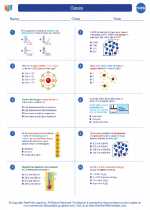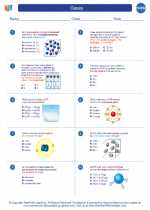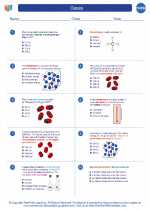Combustion Reaction
A combustion reaction is a type of chemical reaction in which a substance combines with oxygen to produce heat, light, and new chemical compounds. This process is also known as burning. Combustion reactions are an important part of our everyday lives and are used in various applications, such as in engines, stoves, and fireplaces.
General Equation
The general equation for a combustion reaction is:
Fuel + Oxygen → Carbon Dioxide + Water + Heat
Example
One common example of a combustion reaction is the burning of methane (CH4):
CH4 + 2O2 → CO2 + 2H2O + Heat
Key Points to Remember
- Combustion reactions always involve oxygen as a reactant.
- The products of a combustion reaction are typically carbon dioxide (CO2) and water (H2O).
- Combustion reactions release energy in the form of heat and light.
- Incomplete combustion can lead to the formation of carbon monoxide (CO) and soot.
Study Guide
To understand combustion reactions better, consider the following study guide:
- Learn about the different types of fuels that undergo combustion reactions, such as hydrocarbons, alcohols, and carbohydrates.
- Understand the role of oxygen in combustion reactions and how it facilitates the burning process.
- Explore the applications of combustion reactions in everyday life, including the combustion of fuels in engines and the use of combustion for heating and cooking.
- Practice balancing combustion equations to ensure conservation of mass and atoms.
- Study the environmental impact of combustion reactions, including the production of greenhouse gases and air pollution.
By mastering the concepts and principles of combustion reactions, you'll gain a deeper understanding of this fundamental chemical process and its significance in various fields.
.


